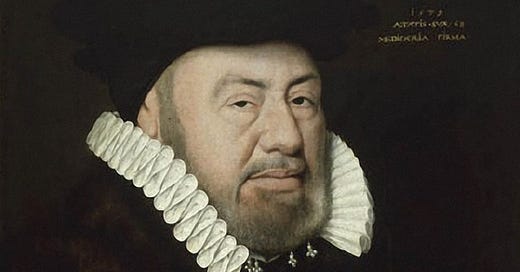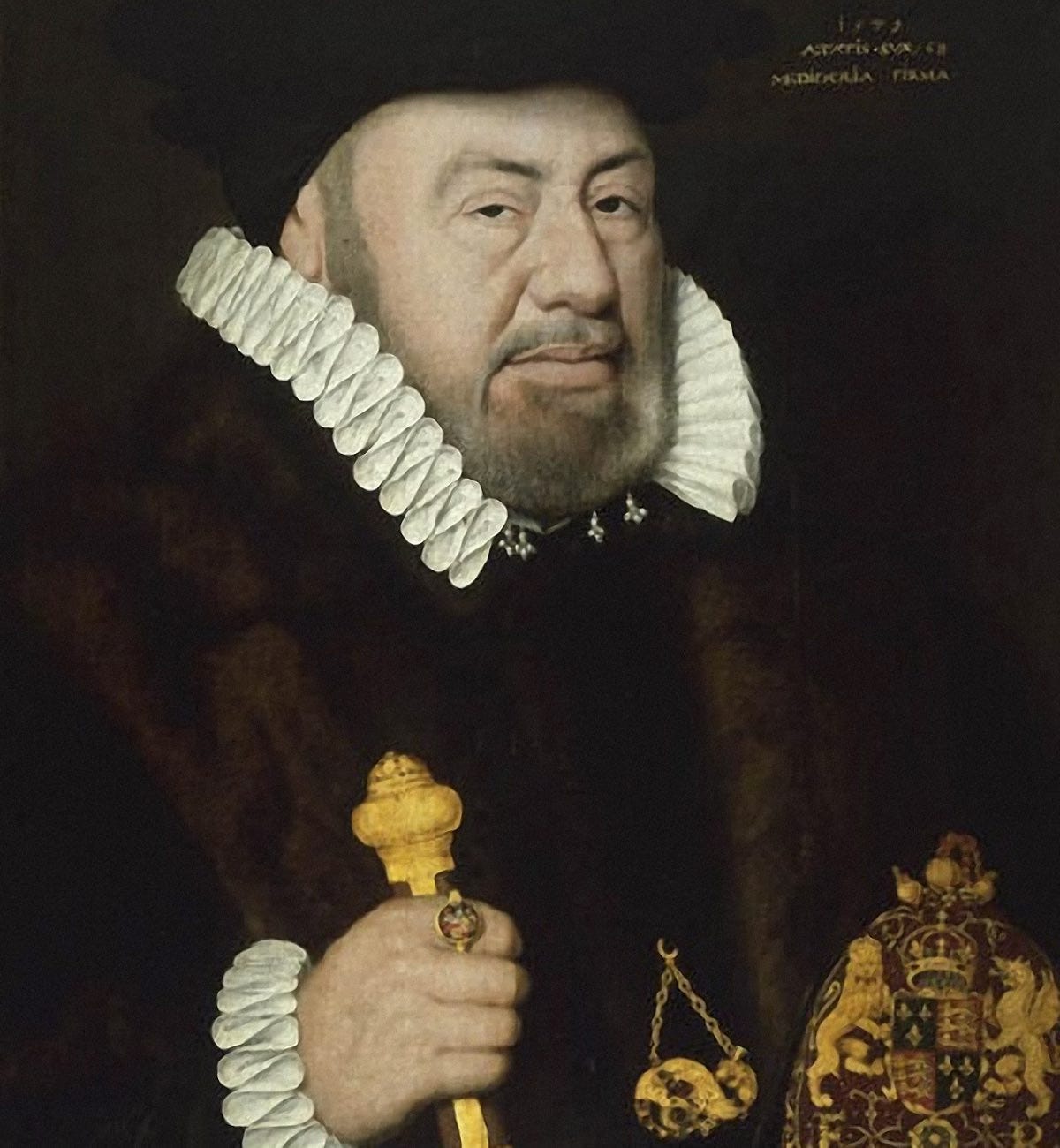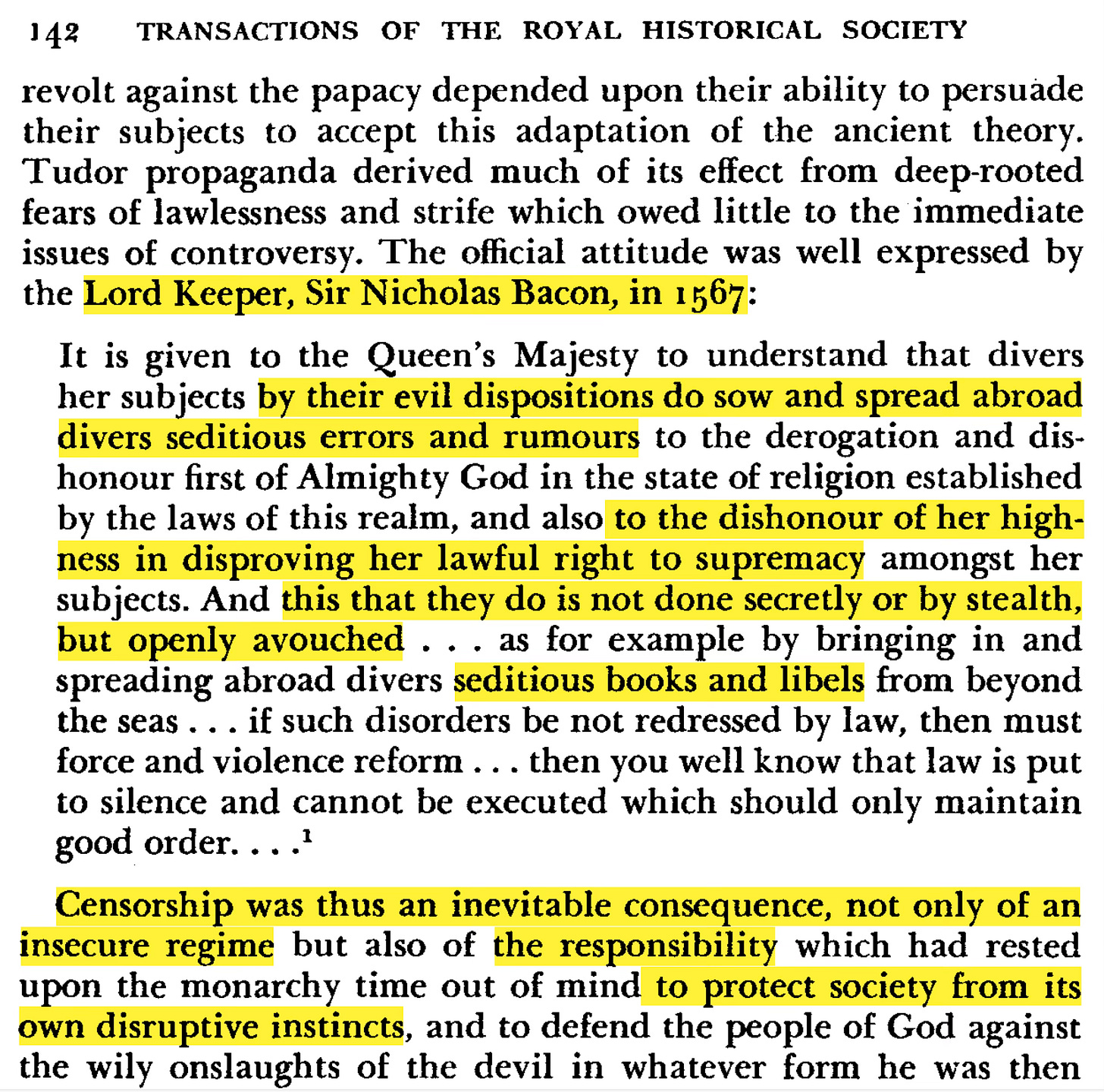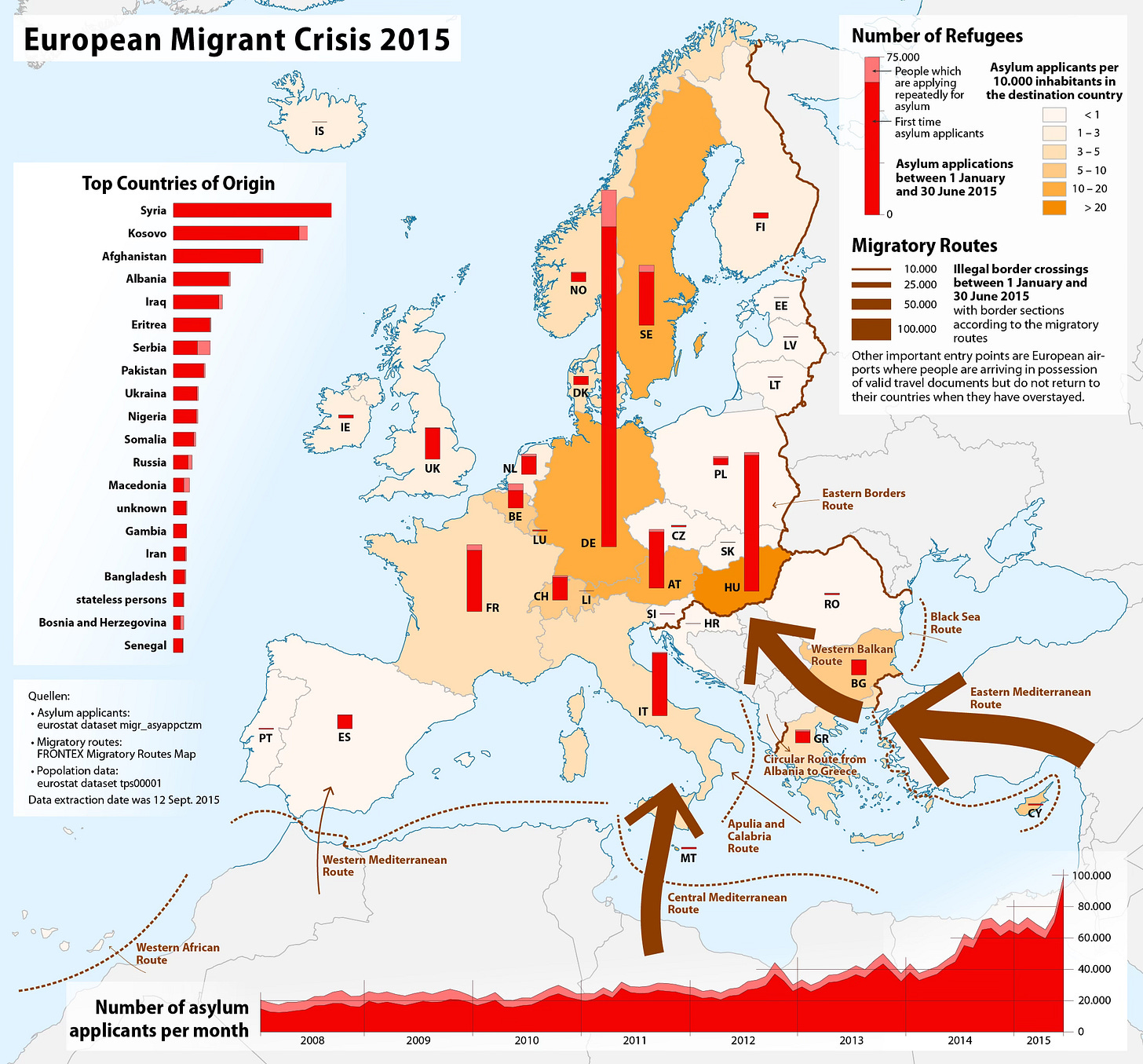Party Like it's 1567
"If people can flagrantly ignore speech laws, the law itself is silenced."
“The Queen understands that her subjects are doing evil when they spread fake news that brings dishonor to God, Herself, and the United Kingdom. The Crown must protect its people when criminals openly share seditious memes and comments. For if the people can flagrantly ignore our speech laws, then the law itself is silenced and we cannot maintain good order without force and violence.” — Sir Nicholas Bacon, Lord Keeper for Queen Elizabeth I, in the Year of our Lord 1567.
Okay, that’s my translation of what Sir Nicholas actually wrote in 1567. But it’s a faithful translation, and it reveals that although today’s United Kingdom may call itself a parliamentary democracy, it is more like an absolute monarchy than Prime Minister Keir Starmer will ever admit.
In 1567, England’s monarch was deeply insecure about the disruptive effects of the printing press. The infernal device had been introduced into England in 1476, and the treasonous acts of printing and reading unofficial books were spreading.
Henry VIII (king, 1509-1547) ) had rebelled against the old world order of the Pope in 1527, and his daughter Elizabeth I (queen, 1558-1603) could not allow the rebellion to fail. If we can believe the Cambridge University Press, we can agree that “it would hardly be an exaggeration to say that the whole success of their revolt against the papacy depended upon their ability to persuade their subjects” to accept Henry’s legal theories about speech.
If you read the first few pages of “The Theory and Practice of Censorship in Sixteenth-Century England,” you find out that Elizabethan society was imagined as a “body politic” where everyone existed in a “fore-ordained and permanent relationship” with everyone else. And so, to “sow discord” or “set one member against another” was not merely a crime but a crime against society, God, and the monarch ordained by God. Which is why it had to be against the law to “spread or repeat” gossip as well as to “originate” it.
The idea of freedom of speech, enabled by the printing press, could not be allowed to threaten Henry’s new world order.
It is now 2025, and England’s Prime Minister is deeply insecure about the disruptive effects of the World Wide Web. The infernal device opened to the public in 1991, and Web 2.0 only accelerated the acts of reading and sharing unofficial ideas.
It’s harder to pin down when the modern rebellion began, or which inbred monarch launched it. But Western Civilization was the old world order, it had to die, and immigration was the weapon of choice.
It began well before 2015, but that was the year the media exploited the death of a Syrian boy and Prime Ministers opened the migrant floodgates.

Keir Starmer is a child of the rebellion, and he cannot allow it to fail. If we’re being honest, we will agree that it is no exaggeration to say the whole success of the rebellion against the West depends on the ability of our leaders to persuade us to accept their speech laws.
If you read any postmodern civics book, you find that our society is still a “body politic” where everyone exists in a “permanent intersectional relationship” with everyone else. Because of that, silent prayer is illegal within 150 meters of a UK abortion center, insults are illegal in Germany, and these are not merely crimes but crimes against the whole of society. Which is why it must continue to be a crime to spread or repeat gossip.
When a criminal Albanian man can remain in the UK “because his son will only eat British chicken nuggets,” it’s a crime to say he’s a dirty Albanian criminal who should be deported. Ditto for the Pakistani pedophile who gets to stay in the UK because “deportation would be hard on his children.” You might be arrested if you call him a pedophile who should be deported.
It is one of the greatest absurdities in human history that “the free press” — which was invented in the West — is now leading the rebellion against the West and demanding that we accept Elizabethan speech laws.
My regular readers will agree with me.
Others will agree with Keir Starmer: “In relation to free speech in the U.K. I’m very proud of our history there. We’ve had free speech for a very, very long time in the United Kingdom and it will last for a very, very long time.”
It’s just that the pesky idea of freedom of speech, enabled first by the printing press and then by the internet, cannot be allowed to threaten Sir Starmer’s new world order.







So much for Enlightenment values.
"...and this is how free speech dies. With loud and thunderous applause!"
SMDH!